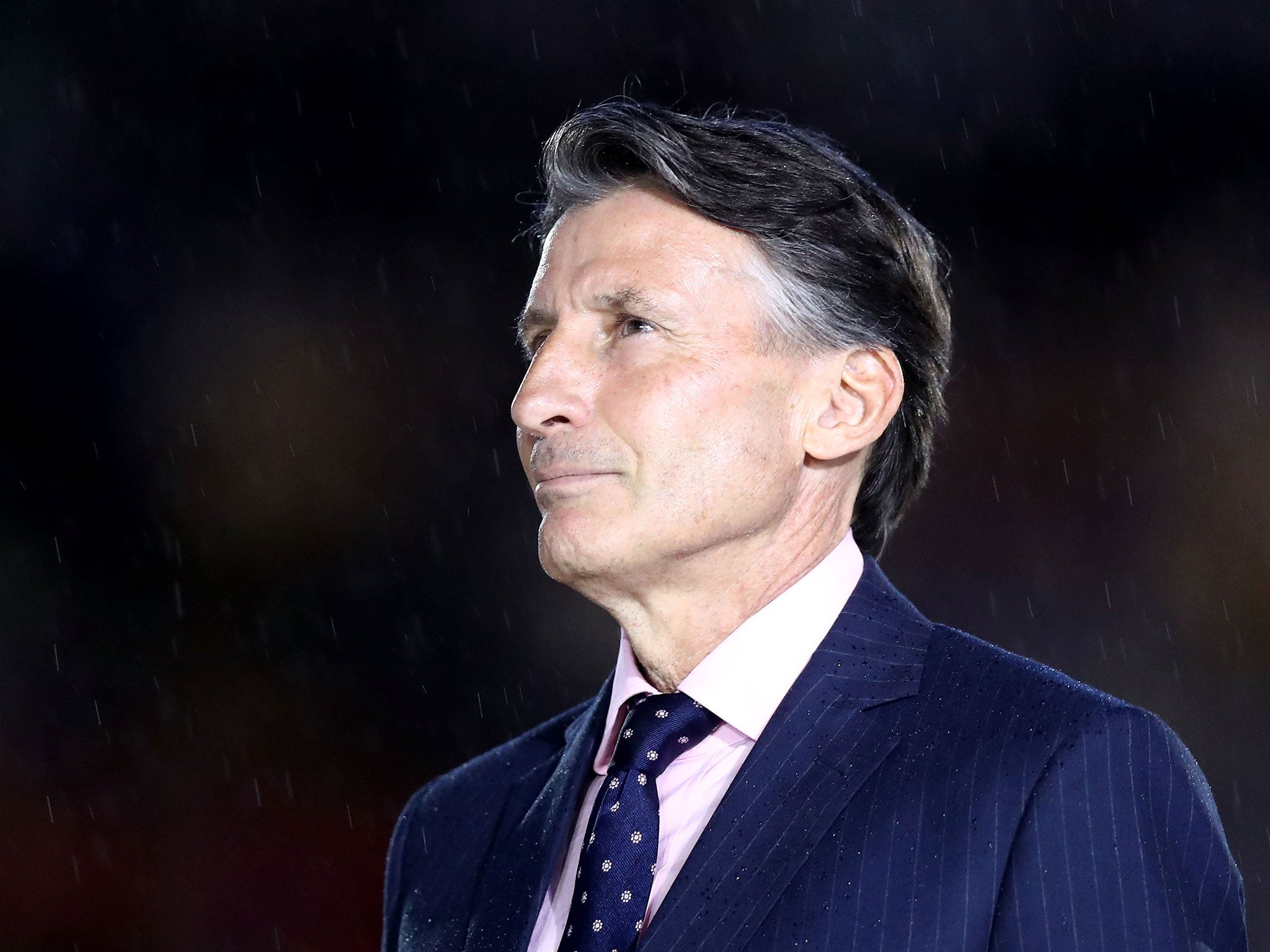Sebastian Coe: The rank hypocrisy of the self-styled saviour, who refuses to answer MPs questions on drugs
For a man who puts himself forward as the saviour of athletics, Sebastian Coe's CMS select committee snub is a move that lacks intelligence and self-awareness

Sebastian Coe tells a story of how he once found himself being monstered on a BBC Radio 5 phone-in by Linford Christie. He was in a hurry, it was a Friday afternoon, his turn to do the school run, and he needed to start getting across London by 3pm. Regrettably, the programme host Simon Mayo “lost control” after “Linford from London” called in. It left Christie free to attack Coe with impunity about a particularly uncompromising column he had written for the Daily Telegraph, which castigated the sprinter for failing a drugs test and not taking his punishment.
The knight of the realm characterised himself as a saviour of the sanctity of athletics as he traded blows with Christie that day. “The exchange continued for 20 minutes or more, a combination of abuse and counter punching, until mercifully the three o’clock news intervened…” he wrote in one of his three autobiographies. His “zero tolerance” approach to drugs in athletics is borne, he claims, of experiences such as overhearing a parent at an athletics meet, saying she would not let her children go into track and field because of drugs – and finding that “deeply depressing.”
It is the fact that Coe has set himself up as a saviour which makes his refusal to answer questions the culture, media and sport select committee want to ask him on January 31 such an act of hypocrisy now.
Reading what Lord Coe has written about drugs – how, for example, he feels he was over-tested because “I was known to be clean. I was a safe test; it helped the stats look better” – provokes little less than rage that he has declined to see Damian Collins’ committee. Coe has merely issued a weasel press release through the IAAF to say he has “no further information” to give.
Such a refusal is rare. The fact that Rupert Murdoch placed himself before the culture, media and sport committee in 2011 and Sir Philip Green answered on BHS serves to demonstrate that few consider themselves above such proceedings, convened by democratically elected individuals, seeking to hold to account those in public life.
“Murdoch appeared, even though he knew it would be a rocky ride,” says one source close to the CMS select committee. Such a slight by a former democratically elected Conservative member and now knight of the realm, who knows the parliamentary process intimately, is even rarer.
The committee’s business is certainly in the public interest. Coe would be asked why he told the committee that he had no idea about an extortion racket involving senior members of the IAAF, whilst vice president of the body. His associate Dave Bedford now claims he called, emailed and texted Coe about demands that Russian marathon runner Liliya Shobukhova pay £360,000 to conceal a positive drug test. The suspicion is that Coe’s determination to win election as IAAF president made him unwilling to damage relationships which might help, and so he neglected to do the right thing with Bedford’s information.
Those with longer memories may recall Coe has not always been so reticent. He found gainful employment for the Tory government back in 1987, co-authoring a report with Conservative Minister for Sport Colin Moynihan, entitled ‘The misuse of drugs in Sport,’ in which the two Conservatives expressed more grave concerns for the children.
“The problem is no longer an ethical one for sport,” the pair write. “There are broader considerations, especially with regards youngsters keen to emulate their sporting heroes…. It is patently wrong for the misuse of drugs in any context to be given the slightest measure of acceptability…”
I was outspoken on drugs before it became de rigueur. All it takes for evil for triumph is for good men to do nothing
The attack on Christie in the Daily Telegraph in February 2001 also formed part of what he calls his “tough stance”. He was freed from the scourge of drugs because he was coached by his father, Peter, he has always said. “Peter not only plotted my athletics career but also mapped the moral boundaries,” Coe writes in his third autobiography. “I was outspoken on drugs before it became de rigueur.” He even quotes Edmund Burke in that book. “All it takes for evil for triumph is for good men to do nothing.”
Coe has always had plenty to say for himself, though his performance is far poorer when he is being pinned down by those who are his intellectual equal. With a vast superiority complex, he always felt that he, with an economics degree, could "go and get a job whenever it is necessary" he tells the writer David Miller in autobiography number 2. What he now requires is the intelligence and self-awareness to see how suspicious it looks when you refuse to answer MPs’ questions. That he cannot see that leaves the parent at the athletics meet to conclude that, where this sport is concerned, precisely nothing has changed.
Subscribe to Independent Premium to bookmark this article
Want to bookmark your favourite articles and stories to read or reference later? Start your Independent Premium subscription today.

Join our commenting forum
Join thought-provoking conversations, follow other Independent readers and see their replies